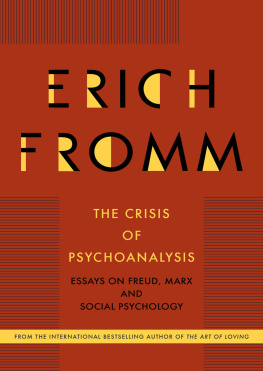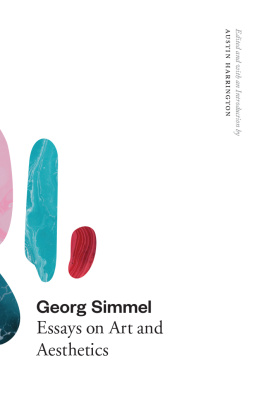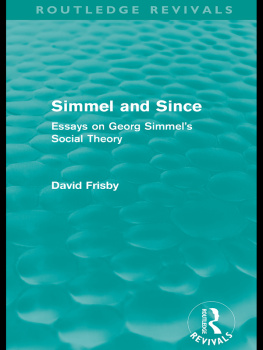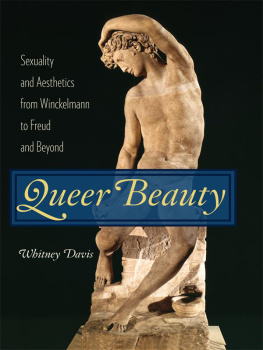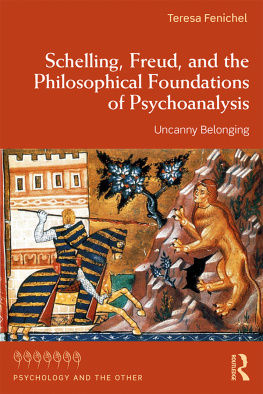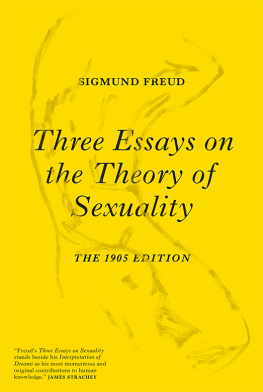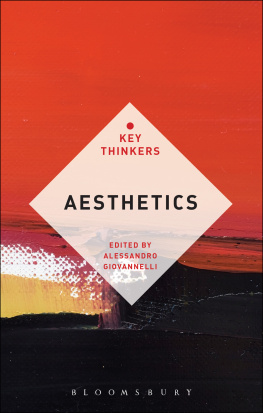Is the Rectum a Grave?
and Other Essays
LEO BERSANI
Is the Rectum a Grave?
and Other Essays
the university of chicago press chicago and london
leo bersani is professor emeritus of French at the University of California, Berkeley. He is the author of Homos and coauthor, with Adam Phillips, of Intimacies , the latter also published by the University of Chicago Press.
The University of Chicago Press, Chicago 60637
The University of Chicago Press, Ltd., London
2010 by The University of Chicago
All rights reserved. Published 2010
Printed in the United States of America
16 15 14 13 12 11 10 1 2 3 4 5
ISBN-13: 978-0-226-04352-4 (cloth)
ISBN-13: 978-0-226-04354-8 (paper)
ISBN-10: 0-226-04352-5 (cloth)
ISBN-10: 0-226-04354-1 (paper)
Library of Congress Cataloging-in-Publicaion Data
Bersani, Leo.
Is the rectum a grave? : and other essays / Leo Bersani.
p. cm.
Includes index.
ISBN-13: 978-0-226-04352-4 (alk. paper)
ISBN-13: 978-0-226-04354-8 (pbk. : alk. paper)
ISBN-10: 0-226-04352-5 (alk. paper)
ISBN-10: 0-226-04354-1 (pbk. : alk. paper) 1. Sex (Psychology) 2. Psycho
analysis and art. 3. Gender identity. 4. Queer theory. 5. Cruising (Sexual
behavior) 6. Psychoanalysis. 7. Aesthetics. I. Title.
BF175.5.S48B47 2010
155.3dc22
2009021307
The paper used in this publication meets the
minimum requirements of the American National Standard
for Information SciencesPermanence of Paper for
Printed Library Materials, ANSI Z39.48-1992.
For Kaja Silverman
Preface
The thematic coherence of this book lies in the connections I have been trying to establish, over the past twenty years or so, among three major topics: sexuality, psychoanalysis, and aesthetics. In part 1, Is the Rectum a Grave? and the other essays address issues that have been discussed with considerable originality (and a sense of urgency) since the advent of the AIDS epidemic and the birth of queer theory. Chief among these issues are questions concerning gender, identity, and sexuality. Perhaps my principal contribution to these discussions has been my ambivalent response to positions that, in my view, have been too rapidly and uncritically accepted in readings of some brilliant yet also problematic texts of queer theory. In particular, the frequently incisive questioning of dominant assumptions about sexual identity were, especially in the early years of queer theory, accompanied by what seem to me oversimplified (or, as I have called them, pastoral) versions of a nonidentitarian sexuality and subjectivity. Is the Rectum a Grave? and, among my books, Homos (1995) most specifically embody these responses on my part, although chapters 4 and 5 of part 1 complicate and, I hope, refine my own views.
The refinements and complications were in large part of the result of my conviction that questions regarding subjectivity (and, in particular, sexual identity) could not be adequately discussed without an appeal to psychoanalysis. My treatment of how this might be done is, once again, ambivalent, this time in regard to my commitment to psychoanalysis. Psychoanalysis had been central to my early work, mostly in connection with literary texts (especially in Baudelaire and Freud [1977] and The Freudian Body [1986]); more recently, it has seemed to me important to address the suspicion, even rejection, of psychoanalytic theory in certain queer and feminist thinkers. Undeniably, psychoanalysis has played a role in the modern project, analyzed by Foucault, of normativizing the human subject. As perhaps the most important modern reflection on subjectivity, psychoanalysis can hardly fail to play a significant role in promoting or obstructing our attempts to re-imagine the subject and to invent what Foucault called new relational modes. I take Foucaults summoning us to rethink the relational as a political and moral imperative (a precondition of durable social transformations), and in my writing I have attempted to define how psychoanalytic notions might both invigorate and impede this project. (The mobility of my thought between psychoanalysis and a non- or antipsychoanalytic current best exemplified in Foucault is most succinctly illustrated in chapter 9, Fr-oucault and the End of Sex.)
Questions of identity are inseparable from questions about how we relate to both the human and the nonhuman world. Subjectivity is inherently relational. What we are is largely a function of how we connect to the world. The tracing of these connectionsperceptual, psychic, communalis inescapably the tracing of formal mobilities, of the shape of how we position ourselves both physically and psychically in the world. Art therefore becomes a crucial model or guide (not, however, in a narrowly formalistic sense) in the invention of new relational modes. My most recent work (especially chapter 10 and the Godard section of chapter 11) are attempts to rethink the aesthetic, not as a category restricted to works more or less officially designated as works of art, but as enabling and exemplifying the ethical positions and commitments which, it seems to me, this entire collection seeks to articulate.
PART I
The Sexual Subject
Is the Rectum a Grave?
To the memory of Robert Hagopian
These people have sex twenty to thirty times a night.... A man comes along and goes from anus to anus and in a single night will act as a mosquito transferring infected cells on his penis. When this is practised for a year, with a man having three thousand sexual intercourses, one can readily understand this massive epidemic that is currently upon us.
professor opendra narayan, the johns hopkins medical school
I will leave you wondering, with me, why it is that when a woman spreads her legs for a camera, she is assumed to be exercising free will.
catharine a. mackinnon
Le moi est hassable....
pascal
There is a big secret about sex: most people dont like it. I dont have any statistics to back this up, and I doubt (although since Kinsey there has been no shortage of polls on sexual behavior) that any poll has ever been taken in which those polled were simply asked, Do you like sex? Nor am I suggesting the need for any such poll, since people would probably answer the question as if they were being asked, Do you often feel the need to have sex? and one of my aims will be to suggest why these are two wholly different questions. I am, however, interested in my rather irresponsibly announced findings of our nonexistent poll because they strike me as helping to make intelligible a broader spectrum of views about sex and sexuality than perhaps any other single hypothesis. In saying that most people dont like sex, Im not arguing (nor, obviously, am I denying) that the most rigidly moralistic dicta about sex hide smoldering volcanoes of repressed sexual desire. When you make this argument, you divide people into two camps, and at the same time you let it be known to which camp you belong. There are, you intimate, those who cant face their sexual desires (or, correlatively, the relation between those desires and their views of sex), and those who know that such a relation exists and who are presumably unafraid of their own sexual impulses. Rather, Im interested in something else, something both camps have in common, which may be a certain aversion, an aversion that is not the same thing as a repression and that can coexist quite comfortably with, say, the most enthusiastic endorsement of polysexuality with multiple sex partners.
Originally published in October 43 (Winter 1987): 197222.
The aversion I refer to comes in both benign and malignant forms. Malignant aversion has recently had an extraordinary opportunity both to express (and to expose) itself, and, tragically, to demonstrate its power. Im thinking of course of responses to AIDSmore specifically, of how a public health crisis has been treated like an unprecedented sexual threat. The signs and sense of this extraordinary displacement are the subject of an excellent book just published by Simon Watney, aptly entitled Policing Desire . Watneys premise is that AIDS is not only a medical crisis on an unparalleled scale, it involves a crisis of representation itself, a crisis over the entire framing of knowledge about the human body and its capacities for sexual pleasure (p. 9). Policing Desire is both a casebook of generally appalling examples of this crisis (taken largely from government policy concerning AIDS, as well as from press and television coverage, in England and America) and, most interestingly, an attempt to account for the mechanisms by which a spectacle of suffering and death has unleashed and even appeared to legitimize the impulse to murder.


